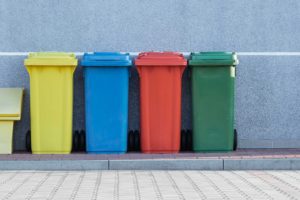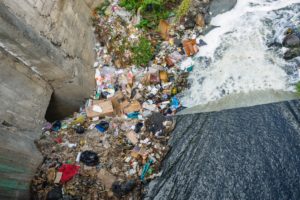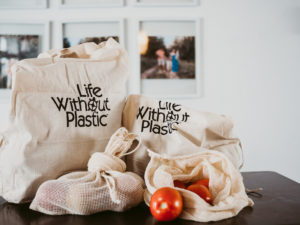
The idea of recycling is one we often hide behind. It’s used as a blanket get-out-of-jail-free card to excuse mass consumerism. How many times have you purchased something and thought, “Well, at least the packaging is recyclable!” Sorry to be the ones to tell you this, but a lot of the time, it isn’t.
Every week, you sort through your paper and your plastics. None of this is to say that recycling is a scam. It isn’t. And most of the time, it is an incredibly effective way of prolonging the lifespan of resources. According to the U.S. Environmental Protection Agency, there are a myriad of benefits to recycling for communities and the environment. But, unfortunately, this is not the case for plastic products.
Recycling plastics

While many types of products made from glass and metals can be recycled many times without a loss of quality, this is not true for plastics. In fact, most recyclable plastics can only be broken down once or twice in their lifespan, effectively “downcycled” into a lower quality plastic. This means that even if you go through your waste, sorting through your papers and plastics to find the ones you think can be recycled, chances are eventually they’ll end up sitting in a landfill eternally. The World Economic Forum estimates that over 30% of plastic packaging escapes from collection systems and is unaccounted for.
The rare plastic products that will be recycled get turned into much lower quality items that lose their recycling potential afterwards. It is also widely understood that globally, only about 10-15% of plastics actually get recycled. All things considered, the easiest way to avoid falling into this disturbing cycle is to simply avoid plastics whenever possible.
Be part of the solution
For many of us, being a smart consumer is the easiest step we can take in our daily lives in order to not buy into the plastic recycling charade. Awareness of ou r consumption makes it possible for greater measures to be taken. We all start somewhere. And at the end of the day, recycling what we can is better than not recycling at all.
r consumption makes it possible for greater measures to be taken. We all start somewhere. And at the end of the day, recycling what we can is better than not recycling at all.
That being said, what are some easy replacements for plastic products?
Swaps for traditional plastic products with newer bioplastics are a popular way of making the same products out of a less harmful material. There is quite a bit of debate surrounding their production however, and their environmental impact. Here at Life Without Plastic, we work hard to ensure that all of our products are made of reliable source materials that are safe for your use and are ethically produced by suppliers we trust. Items like our stainless steel takeout containers can easily replace all your plastic tupperware. We also have fine alternatives to single-use items like take-out coffee cups available on our website.
Don’t be discouraged!

I didn’t want to write this and leave a sour taste in your mouth, or my own, about the state of things. I’ll link below some more interesting reads about exciting innovations in recycling that I hope brighten this up a bit. Enjoy!
- Tons of huge corporations are starting to buy into the idea of a circular economy, in which they design out waste. While this isn’t perfect, it’s a great start, especially because it provides a clear, organized – and trendy – way for large corporations (i.e., large plastic producers and users) to shift their plastic habits in more sustainable directions.
- Many new types of waste-free food packaging are being developed. The issues surrounding food insecurity and food waste should also benefit from these innovations.
- There is a new promising market for textile waste, and its reuse. A number of start-up companies are looking to make this consumer waste reusable.
Read more about the harms of plastics – to your and the planet’s health – and the benefits of responsible consumerism in our book.
To find out more about why plastic can’t be recycled, check out these articles:
- The Guardian‘s piece about what happens after you throw something out
- NPR‘s investigation into Big Oil’s role in the myth of plastic recycling
- EcoWatch‘s take on how plastic recycling affects environmentalists
Author: Regan H.
